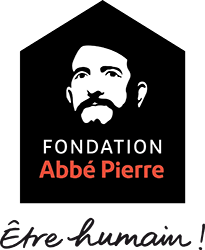The UN Special Rapporteur on extreme poverty and human rights, [1] Olivier De Schutter, and the UN Special Rapporteur on the right to adequate housing,[2] Balakrishnan Rajagopal, have in a letter to the French Government[3] expressed their concern about a draft law increasing penalties for unlawfully occupying housing and commercial buildings.[4]
The draft law which has also been subject to criticism by Civil Society Organizations, the French Human Rights Ombudsman[5] and the National Consultative Commission for Human Rights,[6]will strongly increase penalties for squatting in homes and buildings, making it subject to fines of up to 30,000 EUR or 2 years of imprisonment. In addition, also remaining in a building or home after an eviction order can be subjected to a fine of 7,500 EUR.
As about 95 percent of all evictions in France relate to unpaid rents or other housing costs,[7] the law puts persons largely living already in precarious situations at risk of criminalization, instead of ensuring access to alternative adequate and affordable housing, which is in many cities and regions of France in insufficient supply.
In their letter[8] the Special Rapporteurs expressed also their concern that the initial draft of the law [9] would have made “propaganda or advertisement” as well for the irregular occupation of housing or commercially used buildings subject to a fine of 3,750 EUR, thus putting as well housing and human rights defenders and other civil society organizations at risk, assisting persons at risk of homelessness or living in informality.
- International covenants do not allow for any regression in the rights of individuals, and in the protections afforded to those who find themselves in housing difficulties, especially if the guarantees of the right to adequate and affordable housing are not effective
- The need for a thorough impact assessment, "in particular to determine which categories of the population will be affected, the number of people likely to be affected, and whether the measures that may affect these people are compatible with the obligations arising from the recognition of the right to adequate housing in Article 11 of the International Covenant on Economic, Social and Cultural Rights"
- Eviction and appeal procedures must be meaningful and fair. Under no circumstances should an eviction result in a person being left homeless.
- Priority should be given to social groups living in disadvantaged conditions, with special attention to them, and policies and legislation should not be designed to benefit already advantaged social groups at the expense of others.
The draft law was adopted on 4 April 2023 by the National Assembly with few modifications and has been transferred to the Senate for final approval.
[6] https://www.cncdh.fr/actualite/lettre-du-president-au-senat-concernant-la-ppl-visant-proteger-les-logements-contre
[9] https://www.assemblee-nationale.fr/dyn/16/textes/l16b0818_proposition-loi
More information about the Bill: New Bill in France will Toughen Penalties on Squatting




